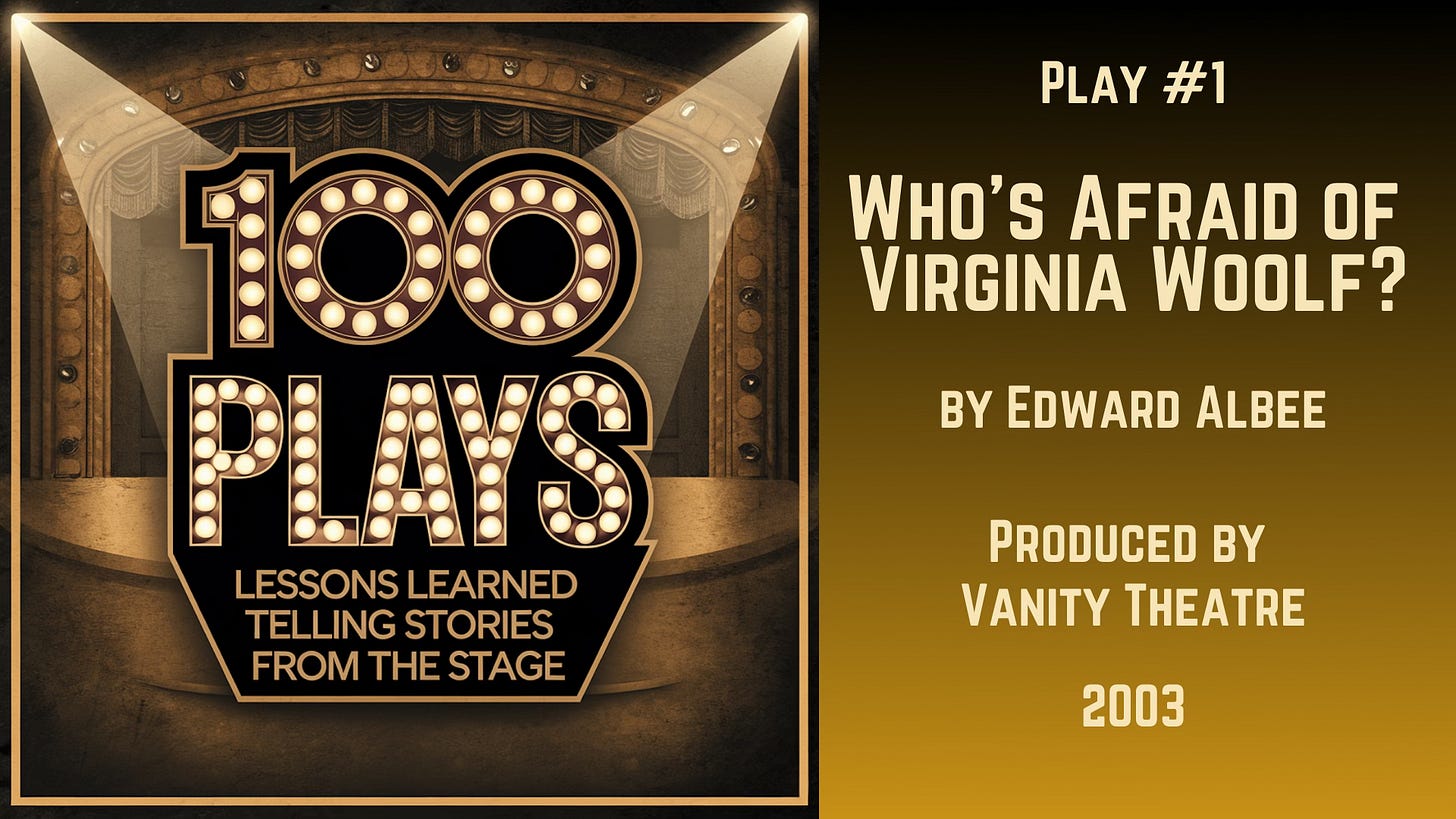I had to share this “Gaia as Hannibal Lecter” pic. Well, Hannibal Lecter with super stylish shades, anyway—
Our beloved silly Rottie was looking a bit lame and having trouble weight-loading her right leg. One vet visit and batch of x-rays later and we know she’s got arthritis and a partial ACL tear in her knee. So now it’s drugs and rehab and laser treatment. Thankfully it wasn’t her hips. Rotties are notorious for hip dysplasia.
She’s doing better (West Coast Veterinary are the BEST), but I tell ya… holding a trembling Rottie to my chest as she tries not to freak out at the strange sensation of cold laser running over her spine and leg… geez I love that pup.
Storytelling tip o’ the week
I was directing a production of Million Dollar Quartet. One of my lead rockstars, Ben, was playing Carl Perkins. He had to play a lot of intricate and fast guitar.
One afternoon Ben tracked me down and told me how the week previous he’d had a performance that was “perfect.” As in he’d hit every note. Every chord was pristine. All his fingering was beyond reproach. His vocals likewise were flawless. And the intellectual, technician side of him was thrilled.
“But here’s the thing, Jason,” he said. “A couple nights later, I had a better show, even though I missed a bunch of notes. I was more connected to the audience. They were more connected to the music. I’ve decided not to worry any more about being ‘note perfect.’ It’s not the best measuring stick for how impactful my performance is.”
Ben couldn’t be more right. Perfection is hollow. It’s static. Once you hit “perfect,” there’s nowhere left to go.
“Perfection is less interesting. For instance, a page with a poem on it is less attractive than a page with a poem on it and some tea stains. Because the tea stains add a bit of history.”
—Anne Carson
We do not trust perfection.
Perfection is fake. It’s unrelatable.
Worst of all, perfection is undramatic. Especially when it comes to your characters!
You want to make your characters more human, relatable, and memorable? Give them flaws. Perfection pushes us away. Even Superman, the most powerful superhero ever anywhere, has his Kryptonite, right?
In classic Greek tragedy, this was called the hamartia, or tragic flaw. Oedipus is the prime example. His flaw was his pride. He was so convinced he was the salvation of Thebes that he couldn’t see all the evidence to the contrary staring him right in his soon to be eyes-stabbed-out face.
When it’s too easy for your protagonist to win, when they are too “perfect,” there’s no drama or conflict. And when there’s no drama or conflict, you story commits the worst sin of all… it becomes boring.
So don’t be nice to your characters. Definitely don’t coddle them. Just like us real humans, characters learn far more from their failures and struggles than from their successes.
Put your protagonist in a tree, metaphorically speaking. Cut off one of their arms, also metaphorically speaking. Then throw rocks at ‘em. Resist the temptation to bring them a ladder. See what they do.
And I know, it’ll be hard, we love our characters, we created them, we root for them. But if you want them to stick in the minds of your reader, you’ve gotta make ‘em fight for what they want instead of just giving it to ‘em.
And they will definitely linger longer with your readers if they are wonderfully, gloriously, hilariously, tragically imperfect.
100 Plays
The first episode of 100 Plays: Lessons Learned Telling Stories from the Stage will hit your inboxes first thing Monday morning!
The first play I talk about is Who’s Afraid of Virginia Woolf? This towering masterpiece of dramatic literature was my first adventure in self-producing, and it taught me a ton.
In this episode, I talk about creating your own opportunities, giving the one perfect surgical note, and why slicing your hand on a liquor bottle is never good theater.
You’ll be able to listen on the Substack App, Apple, or Spotify.
Or, if you want to put a face with a voice, you’ll be able to watch the video version of this podcast over on YouTube.
See you Monday!
The Page&Stage Podcast
And since I’m now a double podcaster…
Here’s your reminder to check out my convo with Kevin McClatchy, an esteemed actor, director, and associate professor at The Ohio State University. Kevin shares insights into his innovative work with the Shakespeare and Autism Project as well as the Shakespeare and Veterans Initiative. Reflecting on his unexpected journey from journalism and sports marketing to acting, Kevin discusses the formative experiences that led to his artistic career. We also touch upon serendipitous encounters and memorable performances that have defined Kevin's remarkable career in the arts.
Thanks as always for reading, and have a great weekend!
Jason “Character Torturer” Cannon






